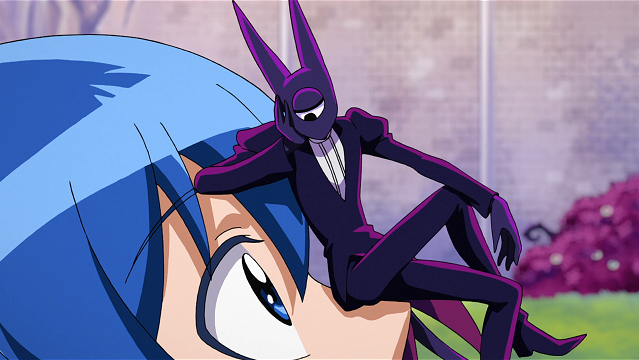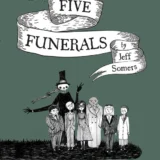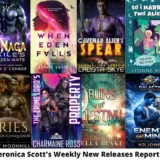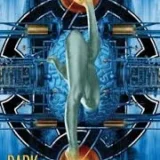
OBIR: Occasional Biased and Ignorant Reviews reflecting this reader’s opinion.
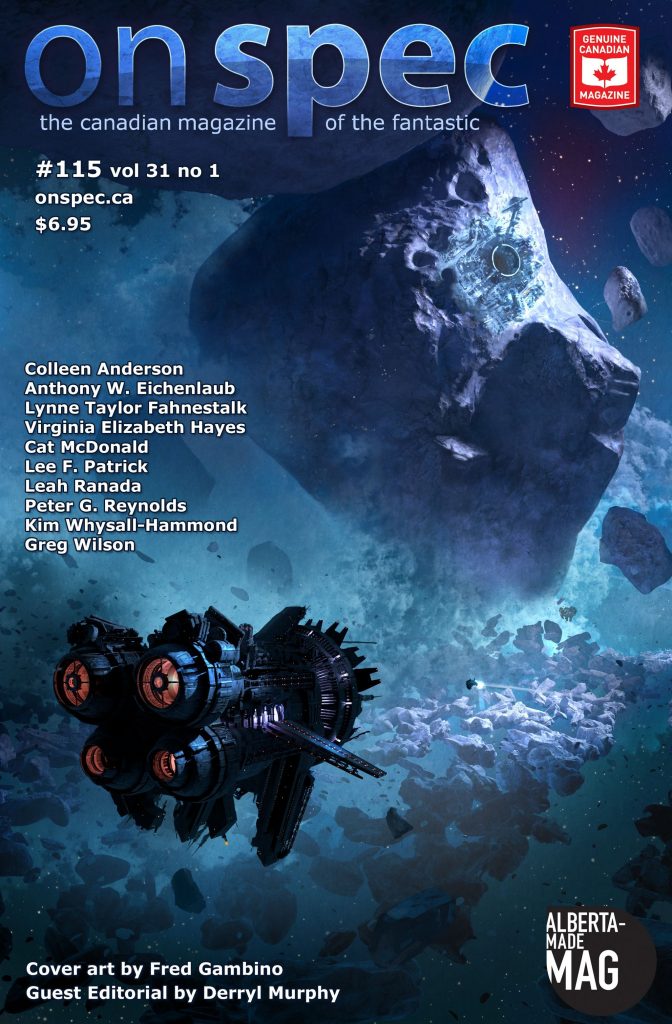
ON SPEC MAGAZINE issue #115, Vol. 31 No. 1.
Publisher: The Copper Pig Writer’s Society. Managing Editor and Art Director: Diane L. Walton.
Issue Designer: Jerry LePage. Poetry Editors: Barry Hammond, and Charlie Crittenden.
Fiction Editors: Barb Galler-Smith, Virginia O’Dine, Madison Pilling, Constantine Kaoukakis, Ann Marston, Laurie Penner, A.J. Wells, Diane L. Walton, Dan Gyoba, Greg Mitchell, Ethan Zou, Alyssa kulchinsky, and Barb Geiger.
Cover Art – by Fred Gambino
Guest Editorial: A Few Thoughts on #DisneyMustPay – by Derryl Murphy
Nikolina
Review:
Disney purchased the Star Wars properties, including Alan Dean Foster’s Star Wars novelizations. Disney’s official view is that they own the rights but not the liabilities, therefore they do not have to pay royalties to Alan Dean Foster. SFWA (Science Fiction Writers of America) is going to bat for Foster, but Disney is ignoring them both.
Murphy explains the details and why the case is so important for all writers. If Disney gets away with it, it sets a precedent for any properties owned by publishers who get bought out by bigger outfits, be they studios or simply giant conglomerates. Contracts need not be honoured. Writers need not be paid beyond what the previous owners paid. But the new owners can go on reaping profit from reprints. Further proof, if you needed it, that becoming an author is a really bad career decision.
Add to this something Bantam tried for a while, a flat rate and no royalties, and writers might as well take a vow of poverty.
Or give up going with mainstream publishers and self-publish. The way things are trending, that might be the only viable financial option in the future.
This is a very sobering, depressing, even frightening article. No wonder On Spec allowed it to be the Guest Editorial. It is something every writer needs to read.
FICTION:
Escape From the Sunset Vista – by Anthony W. Eichenlaub
Premise:
Bastion hates the view from the windows of his old folks home. Just a giant billboard. But what really bugs him is that he seems to be the only one who can see the military drone popping up occasionally from behind the billboard. Makes him uneasy.
Review:
Being a senior, stories taking place in Care Homes for the elderly have a special resonance for me. In theory, I’m going to wind up in one, and sooner than I think. Which is nonsense, since I can’t possibly afford one, but never mind. Point is I often wonder how I will cope in a reduced, limited lifestyle surrounded by old geezers like myself when I prefer to be independent and live alone.
Bastion’s close buddies each have their own strategies. Easy for Rooster, his failing memory is a great comfort. Sufficient to swear at everyone and everything. No need to get complicated. Julie remains sharp as a tack, and gives full rein to cynicism and sarcasm. Louis the male nurse, a huge man, is a quiet but invincible force imposing order and routine, and is probably everyone’s enemy, gentle and patient though he be. Bastion has the feeling the whole thing is a set up, but what kind he doesn’t know.
But what really bugs Bastion is the fact he’s obviously as sharp as Julie but his memory is even worse than Rooster’s. Doesn’t make sense. He doesn’t want to be mistaken for your typical paranoid curmudgeon, but something definitely doesn’t feel right. He wants answers.
The story has all the fun of seniors conspiring to solve a mystery, then broadens into a wider landscape implying freedom is best left alone in a dystopian world where memory loss, a form of ignorance, is definitely a blessing. This particular vision of our future and how we cope with it, in terms of memory manipulation, is not at all far-fetched. Some might argue it is already happening here and now. I fear this is a remarkably prescient tale.
The Perfect Shot: The Adventures of Flick Gibson, Videographer – by Peter G. Reynolds.
Premise:
Flick, a war videographer, is more than willing to risk his life to get footage perfect for the news market, Not for the sake of art, but for the money and prestige. Oddly, alien warriors don’t seem to care.
Review:
With a title like the above, you know the story will be a bit glib. But only on the surface. It seems to focus on the desire to get the “Bang! Bang!” shot, the dramatic kill shot which is a guaranteed big pay cheque for an independent combat photographer, be it a still photo or video footage, but there is more to it than that. You might think, no need to introduce aliens, for any modern war or civil war can provide the setting for such a story, but in fact the aliens are necessary to the subtext, to the real meaning of the story.
Thing is, despite the “objectivity” of the viewfinder, a war journalist knows the people trying to kill him are people, difficult to relate to, perhaps, but not impossible. Being caught up in a war zone can feel astoundingly personal. Yet it’s an illusion of sorts, your life or death is often a matter of luck and fate, the consequence of an impersonal machine-reality that doesn’t actually care if you live or die. That can make the individual feel extremely insignificant … and doomed.
In this case the alien soldiers are a source of frustration for Flick. Their motivations are hard to figure. He wants them to be predictable, pretends they are for the sake of his sanity, but they’re not. In a sense, he feels “alienated” on the battlefield, he can’t seem to fit in comfortably. Makes the odds seem way too long. This provides some morbid humour. So, too, do the aliens, since they can’t figure out humans either. Propaganda doesn’t work because it’s impossible to portray an enemy as evil when you haven’t got a clue how they think, what they believe, or what they want. Annoying.
To sum up, a “quest” quite common in contemporary conflict is combined with the “death to aliens” trope to emphasis the sterile passion and absolute absurdity of war, albeit with touches of humour. Quite ingenious that, and results in a story simultaneously unnerving and entertaining.
The First Woe – by Virginia Elizabeth Hayes
Premise:
When investigating a derelict city, try not to read any inscriptions you find.
Review:
This is a hard story to describe without giving away the plot. An immense evil is unleashed during an accidental blind date but this means nothing to Zeke and P.J. compared to the perils of contemplating a deliberate first “official” date to come. In fact combatting evil itself is nothing at all when contrasted to a futile, impulsive desire to conquer inhibitions and self-doubt. Granted, to be threatened with death is a trifle annoying, but to be threatened with love is infinitely worse, at least on first impressions. Still, maybe worth a try.
The two characters know more about what they are confronting than the readers do, at least at the beginning, which is normally a bit of a cheat, but since the monstrous evil threatening humanity is only a nuisance to the potential lovers, their flippant, dismissive approach to the problem makes the unveiling of the mystery of what’s actually going on rather fun. Actually, rather refreshing to have heroes who are not at all gung-ho about being heroes. Zeke and P.J. put me in mind of Steed (Patrick Macnee) and Emma Peel (Diana Rigg) in the old T V series The Avengers. Not that they are identical, but both “teams” appear to take their role for granted, to the point of fighting boredom by being droll. The main difference being that Steed and Emma were also supremely confident in their personal lives, whereas Zeke and P.J. are self-conscious losers in personal affairs. Makes them easier to identify with.
Yes, the story has nothing to do with the TV show, but the comparison is what sprung to my mind. I guess my point is the story is as much fun to read as The Avengers was to watch. Nonchalance can be an entertaining virtue under the right, rather difficult circumstances.
Immensity – (Poem) by Kim Whysall-Hammond
Premise:
The universe be big.
Review:
In a mere six lines of vivid detail the true immensity of the universe is strikingly portrayed, along with hints of the nature of our presence. The more I think about this poem the more I like it.
Self-Segmenter – by Leah Ranada
Premise:
The Philippines can be dangerous at night, what with beautiful monster-women flitting about the sky searching for people with delectable entrails to eat.
Review:
You won’t see Philippine Chamber of Commerce tourist publications pushing Manananggals, those zany mythic monsters who leave their lower torso and legs behind every night to go on the hunt, even though the fact their upper bodies resemble beautiful women might be a bit of a draw. However, the risk of being disembowelled every time you meet one probably negates the positive aspect. I once had a co-worker who firmly believed in these creatures, to the point of declaring that when he lived in the Philippines before moving to Canada he never drove his convertible with the top down at night for fear a Manananggal would swoop down and pluck him out of his seat and carry him off to consume. He was dead serious. You don’t joke about Manananggals.
What makes this story interesting is that it is told from the point of view of a Manananggal who is jealousy personified, in that she, like all her “sisters” was once fully human but unlucky in love. They are normally scorned brides seeking revenge, but in her case the love of her life fell fighting the Americans in the first revolt. Yet she hunts her own people, and they her. Possibly both are motivated by a sense of betrayal? It is remarkable she envies them their fear of her. She’s beginning to feel a bit jaded. Hmm, seems like even monsters could use a good psychiatrist once and a while.
The story is not “Jonathan Livingston Seagull” (for those of you who remember that inspirational self-help book) and yet, in a way, it is. Interesting reflections on love, betrayal, the desire to be loved, and how cruelty matures in a disillusioned waif grown into the adult world. Since all of us have a trace of Manananggal in our souls, a highly interesting read.
And Should I Fall Behind – by Greg Wilson
Premise:
People fear dying alone. Yet, if your body is the prison of your soul, death can be seen as a liberating release. But what if the prison has more than one inmate? You may not be as alone as you think.
Review:
This rather Lovecraftian tale involves a dying brother and a loving sister, each gifted, awaiting the inevitable consequence of the young man’s physical decline. Georgia writes and sells fantasy, and feels disturbed that her brother Robbie brings her fiction to life in his dreams. Oddly enough, their doctor, who previously failed to cure their mother of the same wasting disease, finds this growing meeting of minds equally disturbing.
What I like about this story is that it begins at a very personal level, almost claustrophobic in scope, draws in diverse elements from a typical nerdy life, and then suddenly expands in significance and import to a near-Olaf Stapledon consciousness evoking vast cosmic vistas redolent of that author’s visions of the entirety of human history. This is very cool. I think both Lovecraft and Stapledon would be pleased.
Pokey Potz Come Out to Play – by Colleen Anderson
Premise:
Pennie Potchenko is virtually the only human left in Ireland who knows how to keep from being eaten alive. “Pokey Potz” the dark ones call her. Hard to say which is worse; that they are so disrespectful, or that they lust after her flesh.
Review:
This is a story rich with grim description both relentlessly morbid and mercilessly raw. Not for the squeamish or faint of heart. Danger is ever-present, though less so during the day. That’s when Penny/Pokey sleeps, encased in metal coils and plates, wearing them like a full-body chastity belt, though the lust the Siddhe, the Barrow Folk, feel for her flesh is cannibalistic rather than orgiastic. These dark ones had crawled out from under the ancient stones two years earlier and she had been running and hiding ever since. Now she feels they are closing in, their threat palpable, the pain overwhelming. Is it too late to fight back? Time to find out.
Many people think they would prefer living in a true fantasy land where ancient myths are proven real and the Fae Folk and others spring to life and bless reality with magical enchantment. Alas, be careful what you wish for, lest dark forces worse than our contemporary mundane reality be unleashed. This vision drips with enchantment all right, in the form of dark ichor and black blood. If Tinker Bell is there she’s been squashed flat.
Colleen Anderson is superb at expressing evil in tone, voice, description and character rationalization and motivation. Her style is intense. In this and many other horror stories published elsewhere she exhibits her power to creep you out. Without question she knows how to get under your skin. One of the most vivid and visceral horror writers I know. If becoming a horror writer is your goal, peruse and study this story closely, for it is a master class in itself.
Masquerade – (Poem) by Colleen Anderson
Premise:
She is a woman of many coats, each with its own purpose, all designed to impress, but the most impressive hides in plain sight.
Review:
At first this poem is an interesting detailing of clothing beyond what people normally notice, a sort of explanation of the mundane which adds meaning and significance to the ordinary. But then it turns out the ordinary can be disconcertingly extraordinary, to the point of justifying fear and paranoia. Here Collen Anderson is taking a more subtle approach than her Pokey Potz story, but since she has mastered the genre and understands it thoroughly, the effect is horrifically entertaining.
Between the Worlds – by Lee F. Patrick
Premise:
Brecan is the only fisherman who can see the lady who is the sister of storms. Sometimes, when Samhain draws nigh, she rewards him with a good catch. But now he has to catch a Druid, and the genuine article isn’t easy to recognize.
Review:
This is a story about steadfast traditional ritual in an age of rapid transformation. If the ritual is ended, the dead cannot die, and that would be a problem. But so few people care nowadays. What’s needed is a spiritual revival, but fat chance of that when the fate of the dead depends on an a single fisherman and an unknown, possibly reluctant Druid. Times are not what they used to be. But then, nothing is.
A slow, almost mournful tale. One anthropologist once wrote you can always tell the difference between a genuine traditional festival and a fake revival created to bring in tourists. In the former the participants are burdened with a sense of duty and a bored “Here we go again” attitude, whereas the latter often features gusto and enthusiasm because the “old” seems new and exciting and on top of that the participants are generally highly motivated in their quest for “authenticity” even though much of it is simply made up. But this quest falls under the first category.
Here the fisherman and his Gran take everything for granted. It’s just something they have to do if they themselves are to remain what they are. As a result this tale offers considerable insight into a pattern of thought that is patient, formulaic, powerfully demanding, and nearly extinct. A glimpse into the Celtic mind before the coming of the modern age. It endures here and there yet, but for how much longer? Perhaps the answer is dead simple. For as long as people believe.
NON-FICTION:
“Find your Expression, Even if your Hands Shake.” – Author Interview with Virginia Hayes – by Cat McDonald
Most of the interview has to do with her story “The First Woe,” or spoilers, in other words. I will say she hints there may be sequels, in that P.J. and Zeke may want to confront the second Woe, and a third, etc. Could make for a delightful series. Hayes mentions she prefers avoiding tours when visiting museums because she often notes odd details scripted guides never mention. She does indeed have an eye for telling detail, which is a talent I consider vitally important, something all writers need. She also notes “I grew up around educated, socially awkward people, so I tend to put them in my stories.” All part of what makes her writing, this story at least, off-the-wall and highly original.
Fred Gambino: Aiming for a Sense of Wonder – Artist Interview by Cat Mcdonald
Gambino has done art for zines as diverse as National Geographic, Scientific American, and On Spec (of course). Originally he pursued commissions, but has adopted the concept of developing his own projects as well. This gives him immense satisfaction. Interesting to note that “ArtStation” is a source of unexpected income he particularly treasures. He considers it the best place for publishers and writers to search for potential cover art creators. As he puts it “I think you [ as an artist ] are missing a trick if you don’t have an ArtStation page.”
Bots and Comics – By Lynne Taylor Fahnestalk
“Sammy Shinebot” & “Outer Rim Day Work.” Good fun these, as always.
CONCLUSION:
Another splendid issue full of well-written stories.
Check it out at: < On Spec #115 >



